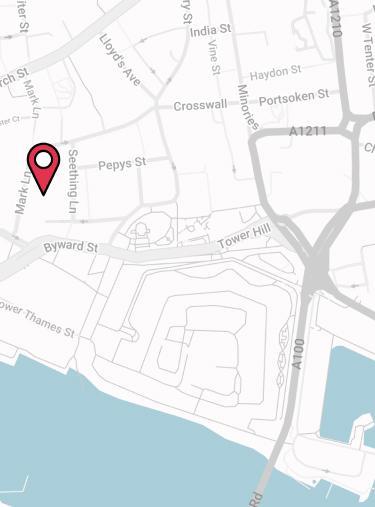
Private Medical Insurance pays for your employees to have medical treatment in private hospitals and facilities. Offering private healthcare lets your staff bypass potentially long NHS waiting lists and receive treatment when they need it most. This can help them to get back on their feet and return to work quicker.
- Access care the NHS may not be able to provide due to cost, such as advanced cancer drugs / treatment.
- Provide employees with appointments to suit them, usually with a choice of consultants, specialists and facilities.
As far as an employee benefit goes business health insurance is the most sought-after paid benefit among workers and therefore a very popular policy.
What Does Company Health Insurance Cover?
It is designed to cover the cost of medical care to help speed up the diagnosis, treatment and recovery of an acute medical condition which might include:
- Scans and tests
- Consultations
- Surgical procedures
- Exclusive drugs
- Alternative therapies
- Hospital stays.
In addition to having access to the latest medical treatments and medications some of the other perks you can expect from your business private health insurance plan include:
- Private room
- Flexible visiting hours
- Shorter waiting times for treatment
- Flexible appointment times that can be tailored to suit your schedule
- Choice of consultants and specialists related to your medical issue.
It is important to note that company private medical insurance is primarily designed to cover acute conditions which are defined as conditions that can be reversed with medical treatment.
An example of an acute condition would be the need for a hip replacement, which can be solved by replacing the joint. The NHS will still be required for treating and maintaining chronic conditions such as asthma and diabetes.
The Difference Between Inpatient & Outpatient Treatment
All medical care is divided into:
- Inpatient / day-patient treatment
All policies cover this in full. Inpatient care is any procedure needing at least one overnight stay in a hospital bed. Day-patient treatment meanwhile requires a hospital bed but just for the day, for example after minor surgery. - Outpatient treatment
An optional extra, outpatient care includes any treatment where no hospital bed is necessary. This includes diagnostic tests, scans, therapies and consultations.
While inpatient treatment tends to be covered in full you will need to decide upon the level of outpatient cover you wish to provide. You have three options:
- No outpatient cover (meaning staff have to use the NHS for diagnostic tests and scans etc.)
- Limited outpatient cover (a mid-range option which caps outpatient care, say at £1,000 per employee per policy year)
- Full outpatient cover (foots the bill for all outpatient treatment staff may need).
The more outpatient cover you choose to provide the more comprehensive your business private healthcare and the less your employees need to rely on the NHS.
What About Cancer Cover?
All of the leading UK business health insurance companies now have pledges in place to cover cancer in full.
As a result of this your employees will have access to cutting-edge cancer treatment through their business health insurance should they ever need it. This often includes drugs and procedures that don’t tend to be available on the NHS because the cost is prohibitive.
Other benefits of private cancer care can include:
- Choice of having chemotherapy at home rather than in a clinical setting
- Cover for the cost of wigs and prostheses that are required as a result of cancer treatment / surgery
- Money to pay for scalp cooling, to reduce hair loss from chemotherapy
- Donations to a hospice should you need to stay in one to receive palliative care
- Access to home nursing for a certain number of days, where a dedicated private nurse will come to your home to check up on you during your treatment.
Virtual GP & Other Support Services
Most business healthcare policies now come with workplace wellbeing benefits including a digital GP service. These offer staff appointments with a GP, usually 24 / 7, from the comfort of their own home.
Typically via a smartphone app, these video calls with a remote GP mean covered employees no longer need to wait for an NHS GP appointment. They also can have an appointment outside office hours, so they don’t need to miss work.
Remote GP services can also make referrals for further private healthcare treatment if necessary.
Read why our client Trailmix, a rapidly expanding mobile gaming start-up chose to set up a small business health insurance scheme. In addition to the core cover their employees are really benefiting from the virtual GP service.
In addition to a Virtual GP appointments other workplace wellbeing benefits you can expect include:
- Counselling / mental health helpline
- Prescription service
- High street discounts
What Is Not Covered?
Pre-existing conditions are not always covered under a company health insurance policy however this will largely depend on how your group policy is underwritten.
Depending on the cover levels you choose for your policy, pre-existing acute conditions will either be completely excluded, temporarily excluded, or covered regardless.
Some of the other most common exclusions are:
- Emergency care
- Kidney dialysis
- Fertility treatment
- Standard pregnancy and childbirth (may be covered for complications)
- Treatment or rehabilitation for alcoholism / substance abuse
- Cosmetic surgery that is not medically required.
Why Is Business Health Insurance Important?
With it being so popular, there are a number of good reasons to introduce health insurance for your employees.
Whether it’s a simple trip to the GP, a dodgy back or something more serious such as cancer, everyone needs healthcare at some point.
Although it’s true that we’re incredibly fortunate to have the NHS in the UK picking up the bill for most of our healthcare, the reality is that the system is under strain.
For instance, at the end of March 2020, the NHS revealed that there were 4.24 million people on NHS waiting lists in England awaiting treatment. More than 1 in 5 such people had been waiting more than 18 weeks.
|
Benefits of Company Health Insurance |
|
|---|---|
|
For Employer |
For Employee |
|
Improved Employee Retention |
Reduced wait times for treatment |
|
Reduced absenteeism |
High quality private medical facilities and treatment |
|
Improved job satisfaction |
Flexible and consistent care from specialists |
The Benefits Of Small Business Health Insurance
For larger organisations there is strength in numbers and if one employee suffers an illness which leaves them on an NHS waiting list for treatment their workload can often be managed by the rest of their team.
For small businesses those resources may not be available leaving an absent employee’s workload with nowhere to go. A small business health insurance plan can be set-up for companies with two or more employees.
Small businesses can benefit the most
Ensuring the employees of a small business are healthy and can access treatment quickly could make all the difference when it comes to delivering business as usual.
Getting a quick diagnosis and treatment at a time convenient to you can go along way in reducing any unnecessary sickness absence.
In addition to the core cover, setting up employee health insurance enables you to provide services at your small business which are usually reserved for larger corporates such as 24/7 virtual GP, physiotherapy and mental health support.
Covering a small business owner or single employee
If you are a small business owner wanting to pay for individual private health insurance through your limited company you can set-up a director health insurance policy.
It will be taxed in the same way as a small business health insurance policy and it will be treated as a P11d benefit.
How Much Does Business Medical Insurance Cost Per Employee?
Getting an accurate quote for a Business Health Insurance policy by yourself is no easy feat. There are so many policy options and details around your business that can influence the price of your policy.
Below we’ve provided examples of the average cost of health insurance per employee for different size businesses however we’ve had to make some assumptions about the level of cover. For instance, we’ve assumed:
- There is a £1,000 outpatient cap
- There’s a £100 excess on the policy
- There is a mid-tier hospital list.
| Average Cost Per Employee (Costs accurate as of December 2025) |
|---|
| Small Business With 10 Employees |
| £42.87 per month |
| SME With 50 Employees |
| £35.52 per month |
| Corporate Covering 100 Employees |
| £37.23 per month |
Note that these premiums are for illustration purposes only. The cost of business health insurance per employee will depend on a wide variety of factors, so it’s always best to seek advice.
If you need any help we are on hand to do the market research and provide you with options from all the leading UK insurers. We are independent specialists who provide fee-free advice and your premiums will be the same whether you use us or go direct.
Pop our team a call on 02074425880 or email help@drewberry.co.uk
Corporate Client Stories
Key Policy Options That Impact The Cost Of Cover
In addition to the level of outpatient treatment you choose to provide there are a number of other common policy options you will need to consider when setting up your company medical insurance.
Excess
An excess is the money employees pay upfront towards a claim before the policy covers the rest. Adding an excess can cut the cost of the scheme by reducing the insurer’s overall bill for your workers’ medical care. Excesses commonly start from £100 (although an excess of zero is possible).
Mental Health Cover
Not every business health insurance policy includes psychiatric and mental health cover as standard, even though it’s one of the most sought-after options. However, it can also be one of the most expensive. This reflects how difficult some mental health conditions are to treat.
Dental and Optical Cover
Most policies cover surgical procedures such as cataract removal or wisdom tooth extraction. However, routine dental and optical treatments such as checkups and eye tests don’t tend to be covered. Adding this option allows employees to claim for such expenses.
Travel Insurance
Some insurers offer a bolt-on travel insurance option which provide cover for emergency medical treatment abroad. Including travel insurance within a business health insurance plan can sometimes be a more cost-effective option than taking out two separate policies.
6 Week NHS Wait
Here, insurers only pay a claim if the NHS wait for the inpatient procedure an employee needs is longer than 6 weeks. If the wait is shorter than 6 weeks, then the patient would receive treatment via the NHS. (Due to the current length of NHS waiting times, some insurers such as AXA aren’t offering this option. The market changes regularly, so if you’re unsure, give us a call on 02074425880 or email help@drewberry.co.uk to find out your options.)
Cover for Family Members
Some employers extend cover to family members. This can either be company-paid or employee-paid. You may find this beneficial as it can reduce the amount of time employees are absent while caring for ill family members.
Underwriting Your Business Health Insurance
The type of medical underwriting you choose can have a big impact on what your scheme covers and the price per employee.
The two most common types of underwriting are:
Full Medical Underwriting (FMU)
The cheapest option. However, it’s the most time-consuming to apply for, requiring all employees to disclose their medical history.
It’s common in small business health insurance schemes which only cover a handful of employees. Usually, the insurer excludes any pre-existing conditions an employee declares.
Moratorium Underwriting
The most common underwriting, this needs much less paperwork than FMU as staff don’t have to declare their medical history.
The insurer excludes conditions an employee has suffered in the 5 years up to the policy’s start date. However, if they serve at least 2 years on the scheme without treatment, medication or advice for that condition, the insurer may look to include it going forward.
More on the difference between full medical and moratorium underwriting here >>

Something to bear in mind with Moratorium Underwriting is that you cannot be sure what you are covered for until you try to claim.
Because insurers don’t take your medical information when you apply, they will look at your medical history when you put in a claim to see if they will be able to cover you.
Nick Nelms
Senior Employee Benefits Consultant
Medical History Disregarded (MHD) Underwriting
A third choice for larger businesses (of at least 20-25 workers) is medical history disregarded underwriting.
The best type of underwriting, this ignores your employees’ medical history. It therefore includes all pre-existing conditions, which means it can provide cover to employees who might not be able to get it anywhere else.
However, it’s the most expensive option.
How Is It Taxed By HMRC?
For the business a company health insurance policy is usually a business expense and is not liable for corporation tax.
However, it is a P11D / benefit in kind for the employees receiving the benefit. That means employers need to fill out a P11D form to declare it to HMRC, which then taxes staff accordingly.
HMRC usually taxes premiums through a reduction in a covered employee’s personal allowance. This will be by the same figure as the price of the premiums paid on their behalf. After this deduction, employees can earn less before tax kicks in.
Common Private Medical Insurance Questions
How Many Employees Do We Need For A Small Business Health Insurance Scheme?
Usually you need 3 employees to set-up a healthcare cover for a small business. If you only have two employees the premiums tend to be the same whether it is set up as a business or as individual policies.
If you are requiring a policy without any medical underwriting (commonly known as Medical History Disregarded) you are likely to need at least 20 employees on the scheme.
Is Company Health Insurance A Business Expense?
Company paid healthcare cover is considered a business expense and the company will gain Corporation Tax Relief but will need to pay Employers National Insurance contributions.
It is important to note Private Medical Insurance is classed as a P11d Benefit in Kind which means the employee must pay personal tax on the value of the benefit they have received.
Does It Cover Travel Abroad?
Some UK insurers provide a set number of days per year they will cover overseas travel.
Other insurers have bolt on options where you can add an element of travel abroad. Some companies choose to set-up a separate travel insurance policy for their employees as it can be more cost-effective.
If you have employees who are stationed overseas for a prolonged period of time you may want to consider international health insurance for your staff.
Does Corporate Health Insurance Cover Pre-Existing Medical Conditions?
Most company schemes will not cover pre-existing medical conditions as they are either underwritten on a moratorium or full medical underwriting basis. In both cases the current state of health of the employee is taken into account when approving a claim.
There is an option called Medical History Disregarded where pre-existing conditions will be covered. This tends to be reserved for larger schemes and is more expensive per employee.
Who Are the Best UK Business Health Insurance Companies in 2026?
As a team of specialists providing independent advice we work with all the leading UK health insurers.
There has been some consolidation over the years which has resulted in the bulk of the employer health insurance market now being made up of four main insurers:
- Aviva
- AXA PPP
- Bupa
- Vitality.
Some insurers are better priced for a younger workforce and some cater better for a small business where others tend to come out more competitive depending on where in the country your employees are located.
To get the best deal for your business when setting up an employee health insurance scheme we will obtain quotes from all the top UK insurers.
In addition to the core cover each of the above Business Health Insurance providers has a number of additional everyday benefits. These often include:
- Digital GP with prescription service
- Mental health and counselling helpline
- High street discounts
- Other health and wellbeing benefits including fitness and nutritional support.
Corporate Medical Insurance Product Reviews
Where Does It Fit Into An Employee Benefits Package?
Given its popularity, business medical insurance is often one of the first benefits employers introduce into the workplace.
Whether it’s small business covering two directors or corporate health insurance for a public company it can form a valuable cornerstone of any employee benefits package. Other insurances you might look at to round off your benefits package include:
- Group Life Insurance
Pays out a lump sum equivalent to a multiple of an employee’s earnings if a staff member passes away while under contract with your business. - Group Income Protection
Provides employees with a continuation of income (a percentage of their wages) if they’re off sick for any medical reason. It works with your company’s sick pay policy to provide comprehensive protection if a worker is ill or injured. - Group Critical Illness Cover
Offers your employees a lump sum payment if they’re diagnosed with a critical illness such as cancer, heart attack or stroke.
Compare Business Health Insurance Quotes & Get Specialist Advice
A small business will often lack the resources internally to do the heavy lifting required to sort out a competitive employee benefits package for their staff.
We have all the specialist knowledge as well as whole-of-market access to ensure you get the best deal for your business. That way you can focus on what you’re best at: Delivering your own proposition.
Why Speak to Us?
Employee benefits can be a headache. But our specialists do this day-in, day-out, offering first class service when you need it most. Here’s why you should talk to us:
- Award-winning independent employee benefits consultants, working with leading UK insurers and benefit providers
- Assigned specialist on hand to help – every step of the way
- 4090 and growing independent client reviews rating us at 4.92 / 5
- Authorised and regulated by the Financial Conduct Authority. Find us on the financial services register
- Claims support when you need it most.
Whether you are a small business or large corporate, if you need help setting up private medical insurance for your employees don’t hesitate to give us a call on 02074425880 or email help@drewberry.co.uk.
Contact Us
125-135 Preston Road
Brighton
BN1 6AF
Cookies
Drewberry™ uses cookies to offer you the best experience online. By continuing to use our website you agree to the use of cookies including for ad personalization.
If you would like to know more about cookies and how to manage them please view our privacy & cookie policy.














